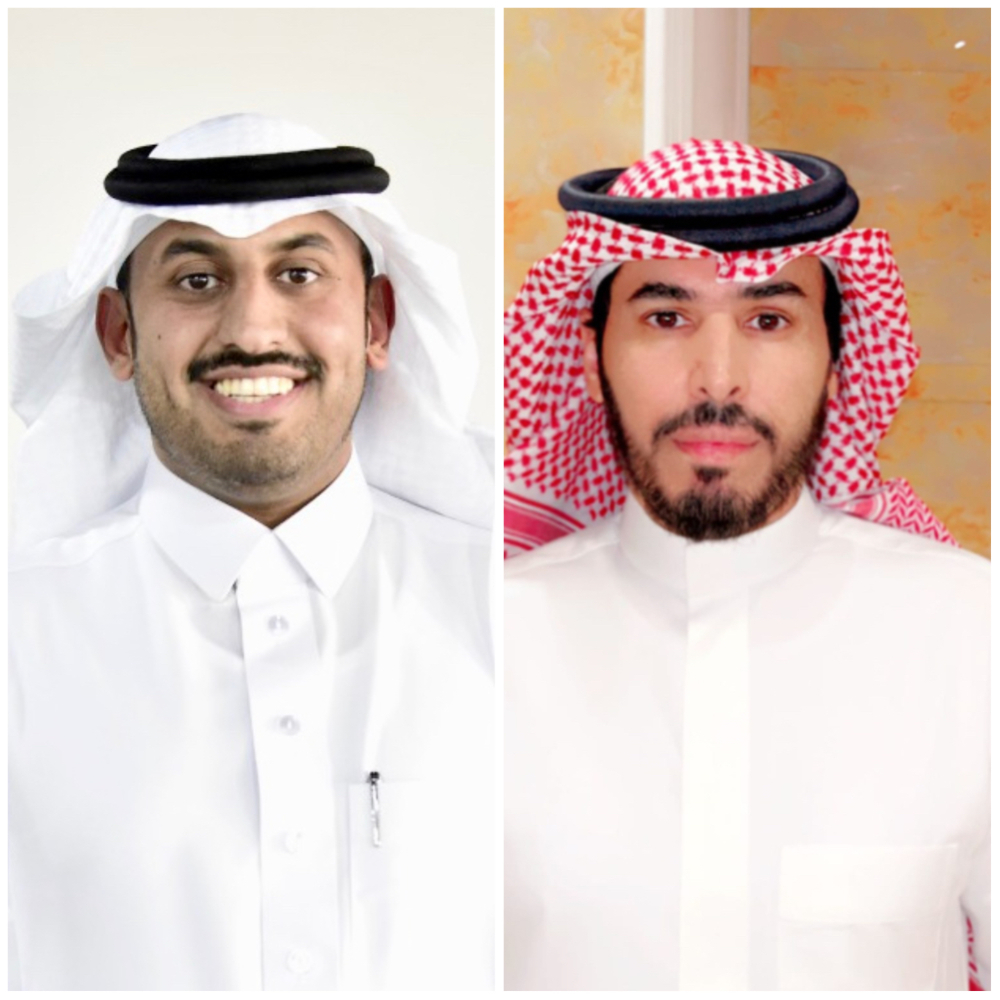RIYADH: Saudi Arabia’s Ministry of Municipal, Rural Affairs and Housing and the Human Resources Development Fund recently signed a memorandum of cooperation to train 20,000 male and female graduates in government institutions and companies through the on-the-job training program Tamheer during the next two years.
The partnership between the institutions to qualify human cadres is important, experts and specialists in the training sector said. “One of the most important steps to achieve success in such projects is the insistence of those wishing to work on developing themselves and their abilities through discipline and commitment during training courses,” one expert said.

Majid J. Al-Ghamdi, Presenter of MAHARAT Podcast (L) and Awwad Al-Dhafeeri, CEO of Shabakat ABAD training Institute. (Supplied)
The agreement signing was attended by Minister of Municipal, Rural Affairs and Housing Majid Al-Hogail, Minister of Transport and Logistics Services Saleh Al-Jasser, Minister of Environment, Water and Agriculture Abdulrahman Al-Fadli and Minister of Tourism Ahmed Al-Khateeb.
It was signed by Turki Al-Jawini, director general of the Human Resources Development Fund, and Ahmed Al-Qarawi, undersecretary at the Ministry of Municipal, Rural Affairs and Housing.
The agreement aims to support the training and employment of national cadres in professions related to municipal and rural affairs and the housing sector; in addition to upgrading the skills of private and nonprofit sector employees and job seekers to enhance their employment opportunities in the labor market.
The memorandum launches joint initiatives to enhance the professions related to the sector, unifies efforts with the authorities to support the growth and sustainability of national cadres in the labor market, and promotes the localization of municipal, rural and housing professions in the private sector.
This come within the efforts of the two parties to support the employment of young men and women, and to achieve the goals of the Kingdom’s Vision 2030 on human and economic development.
The memorandum includes several initiatives, inclduding on-the-job training program, electronic training, supporting the growth of small and medium enterprises operating in the sector, in addition to empowering the national workforce in the nonprofit and private sector by supporting their training and upgrading their professional skills to enhance their sustainability in the labor market and keep pace with changes.
The memorandum said that the two parties would work to hold meetings to promote the localization (Saudization) of professions in the sector, study the needs of the private sector, develop supportive plans to promote Saudization and develop national cadres, and raise the awareness of institutions operating in the sector about the fund’s programs and services and the mechanism for benefiting from them, through workshops and periodic meetings.
“Training, qualifying and supporting fresh graduates to get a job in the labor market is a great responsibility and is not an easy task, this is the answer of why the Ministry of Municipal, Rural Affairs and Housing seeks to train thousands of graduates in government institutions and distinguished companies,” said Awwad Al-Dhafeeri, CEO of Shabakat ABAD training institute.
He praised the support of several government agencies for the development and education process and the enrichment of electronic training content. “This will contribute to the providing of qualified cadres with strong scientific and practical skills and keep pace with the rapid development that is taking place in the market,” Al-Dhafeeri said.
“The step of the contributors will support the training process, employ national cadres, and raise the level of skills of private and public-sector employees and job seekers to enhance their employment opportunities and their sustainability in the labor market,” he said.
Al-Dhafeeri, who has been running training centers for 15 years, said that “launching joint initiatives to promote professions related to all sectors, and unifying efforts with relevant authorities to support the growth and sustainability of national cadres in the labor market and promote the localization (Saudization) of professions which stand as pillars of building and developing our dear Kingdom.”
“One of the most important steps to achieve success in such projects is the insistence of those wishing to work (job seekers) on developing themselves and their abilities through discipline and commitment during training courses,” he said.
Al-Dhafeeri urged new graduates to choose the right place and expert trainer to establish a solid base of information on which they could build on what they learned during their studies, and reinforce their accumulated experiences during their practical practice in their professions.
Majid Al-Ghamdi, presenter of MAHARAT Podcast, said that “the Saudi Vision 2030 focused on developing the human element, which is the basis of creativity and progress, so today we see such a high number, we are talking about 20,000 graduates of both sexes, who will receive on-the-job training.”
Al-Ghamdi, who previously headed the training and development department at the Saudi Broadcasting Authority, said: “As training specialists and workers in the training field, we consider the importance of building real skills in the practical field, which is a process of bridging between education and the career field and labor market, based on the existence of a related problem in the labor market.”
“Many parties (employers) demand previous experience as a requirement to employ new graduates, so this positive cooperation between many of the government agencies came to solve this real big problem and build the concept of on-the-job training on one hand, and building job experiences on the other,” he said.
“We live in a time of skills, not just certificates, because the field always requires practical skills, soft and hard skills, present and future skills, and all of this comes with continuous training and development,” he said.














